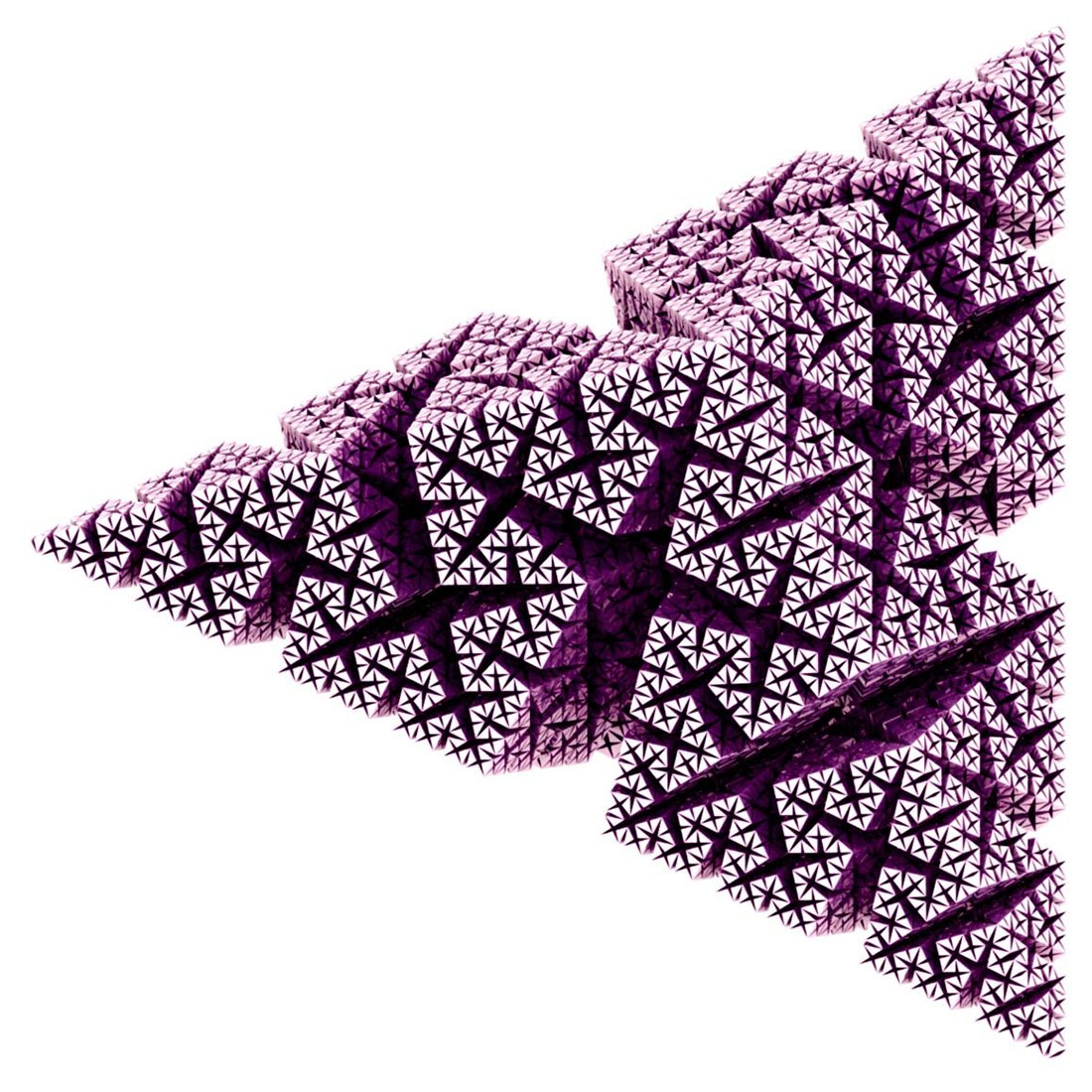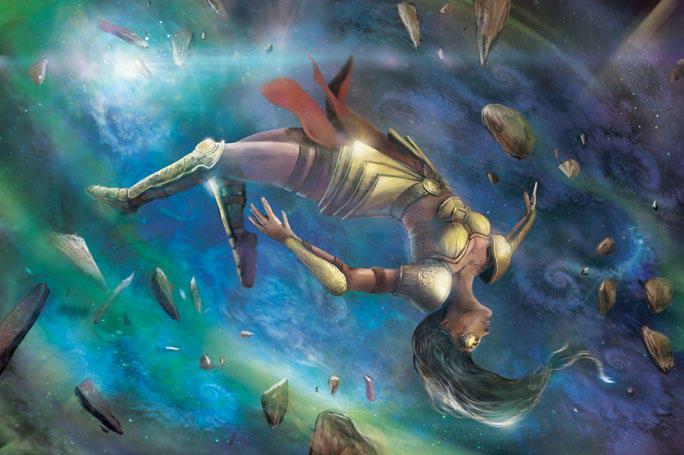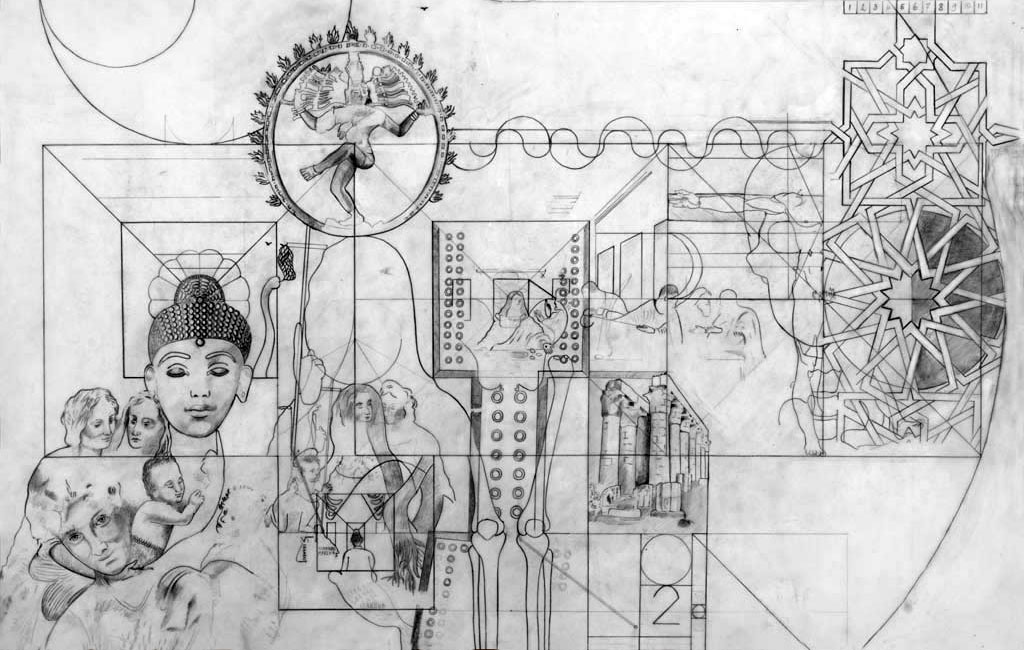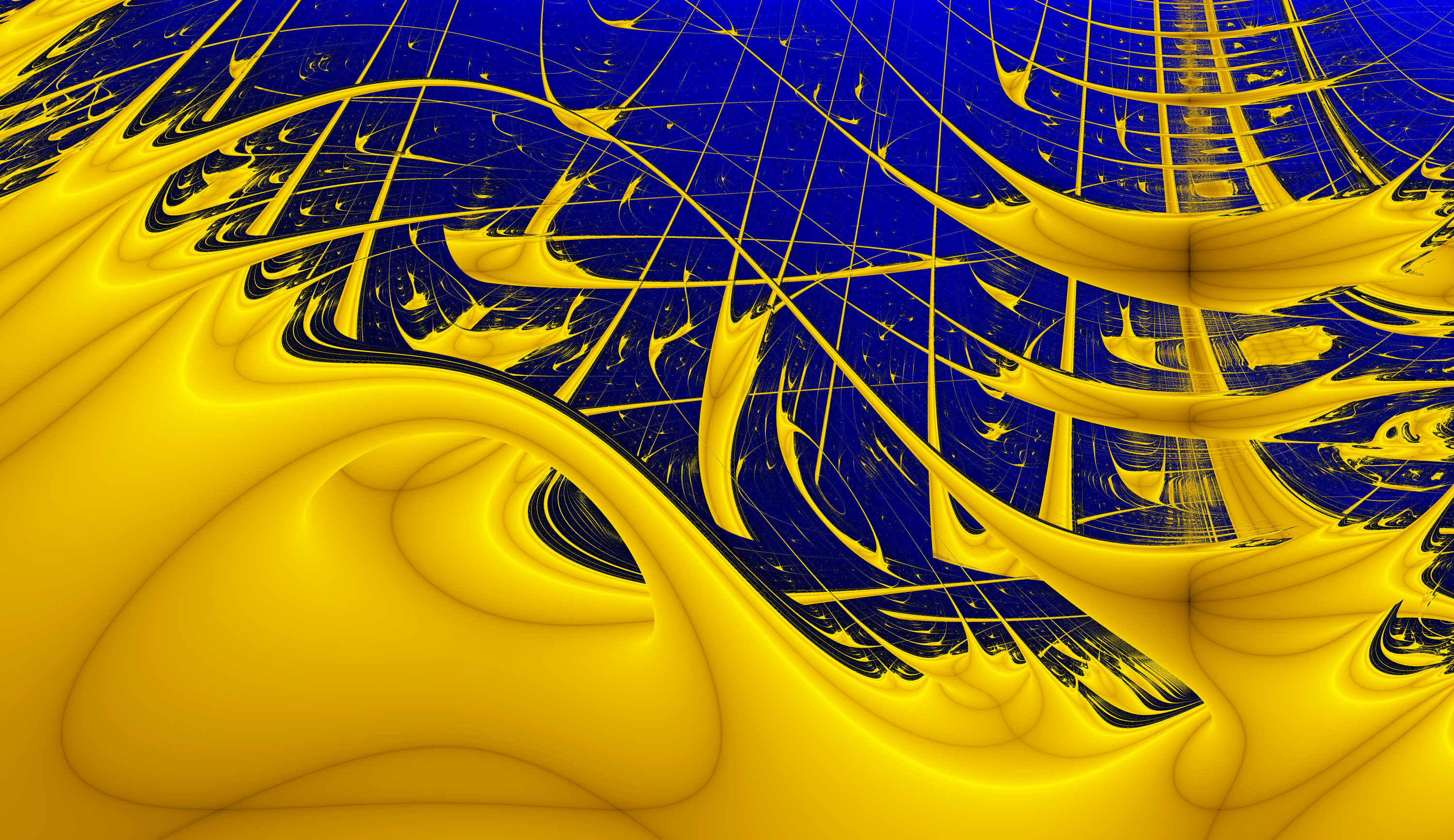TRANSLATION AS QUANTUM LEAP
In stark contrast to inapposite recursion travel, the process of translation — which has been hypothesized to use the “normal” transfer protocols of the dark energy network — is, if you’ll pardon the pun, a strange one.
A fundamental part of the translation process, of course, is that the Strange alters the recursor in order to fit them into the local context of the destination recursion. This can include physical alterations, but also notably includes new skills and abilities, too.
 The experience of having these new skills, however, is similar to an amnesiac’s: The recursor has semantic memories of how the skill is performed, but lack any episodic memory of how they were acquired. This can be disorienting and sometimes confusing. Even more disturbing for many is the realization that the Strange overwrites some of their normal semantic memories in order to… make room? for the new semantic processes. (Or possibly the Strange is blocking those semantic memories without actually removing them? But for what purpose? Or is it just a random bug resulting from whatever catastrophic event caused the Strange to malfunction into its current form?)
The experience of having these new skills, however, is similar to an amnesiac’s: The recursor has semantic memories of how the skill is performed, but lack any episodic memory of how they were acquired. This can be disorienting and sometimes confusing. Even more disturbing for many is the realization that the Strange overwrites some of their normal semantic memories in order to… make room? for the new semantic processes. (Or possibly the Strange is blocking those semantic memories without actually removing them? But for what purpose? Or is it just a random bug resulting from whatever catastrophic event caused the Strange to malfunction into its current form?)
(Note: Although it’s customary — and recommended! — for players to choose their new Focus when traveling to a recursion, this is generally not an experience shared by the character. Most characters are surprised by their new appearance, skills, and the like.)
Fitting the translated recursor into the context of the recursion is not merely a matter of changing the recursor, however. The Strange also seeks to integrate them into the life/narrative/social topography of the recursion. Generally speaking, there are two versions of this.
The Man With No Name: This is widely considered the easier variant. The Strange decides that the quickened individual should be cast as some form of outsider who has just arrived in town (or similar scenario). There may be some evidence that they’ve come from somewhere else (travel papers, identity card, or the like), but that life is largely irrelevant to current circumstances and often turns out not to have left any meaningful trail to it (dead parents, no friends, classmates who don’t really remember you all that well, etc.). In some cases, a recursor will find that their identity’s “former life” never existed at all, with continuity gaps in to the recursion.
Quantum Leap: The other variant has been nicknamed quantum leaping by Estate Agents. Here the recursor finds themselves slipped into a fully fledged identity within the recursion: They’ll have family, a job, friends… and no memory of any of them. Figuring out the parameters of the life they’ve found themselves in can often be a little tricky.
(Even worse is “cliffhanging”. That’s when you show up in a recursion hanging off of a cliff or having a gun pointed at you with no idea how “you” got “yourself” into this situation.)
In some cases, this new identity and its full supporting cast will have been created out of whole cloth by the Strange and integrated into the recursion. In other cases, the translating recursor will have taken over the life of some previously Spark-less member of the recursion.
Translation Orientation: Upon arriving in a new recursion, recursors typically have no knowledge of the recursion or of their place within it. However, in some cases recursors gain episodic memory in addition to semantic memory, often manifesting as a basic knowledge of what the recursion is. (It’s been suggested that this is the subconscious mind in some way picking up knowledge from the Strange’s data stream.)
Quickened individuals with sufficient skill can sometimes force this acquisition of information about a recursion they’re arriving in via translation.
(Note: This is a specific house rule. Players can spend 2 XP when translating to a new recursion in order to get the standard “recursion briefing” described in the core rulebook. If they do not, they simply arrive in media res and will have to figure things out as they go.)
Persistent Recursion Identity: In very rare cases, translating out of a recursion won’t cause the PC’s identity there to disappear. Instead, a spark-less duplicate (seemingly possessing only the knowledge of the “recursion identity”) will continue living their life there. (This construct will, of course, be once again replaced by the PC when or if they return to that recursion.)
Many find this disquieting for obvious reasons.
No one has ever observed a persistent recursion identity gaining the Spark (let alone becoming quickened in their own right). It’s possible that it’s impossible for this to happen. But if it did, no one knows what the consequences would be for the recursor to whom the identity “belongs”. (It’s possible that they would simply kill the new Sparked individual. Or it’s possible that they would just temporarily inhabit their body. Or it’s possible they’d both end up in the same head, able to talk to each other and wrestle for control of the body. Or maybe the recursor would simply find themselves in a new identity, since their former one has been “claimed”.)
THE CRISIS POINT
Contrary to what the core rulebook says, the Aleph component buried inside the Earth is not why Earth has generated so many recursions. The Aleph component may prove important, but Earth isn’t a special snowflake: The Strange is drawn to concentrations of sentient life. Any planet with 7+ billion people on it would have a similar corncucopia of recursions all around it.
And that’s part of the problem.
Historically, Earth’s population was small and its collective creative consciousness was heavily limited due to the lack of mass communication. The lower concentration of the Strange around the planet meant that ideas needed to be bigger and more persistent in the collective subconscious of the planet in order to instantiate as a recursion, and the limits of literacy and communication meant that it took very long periods of time for ideas to reach that threshold.
Now, however, the population has caused the Strange to concentrate. That lowers the threshold for the creation of new recursions at the same time that the sheer size of the population — combined with mass literacy and mass communication — has caused an explosion in memetic content.
There’s also some evidence that the concentration of the Strange around the planet is resulting in a higher proportion of the planet’s population becoming quickened, at the same time that the population boom would already be radically increasing the total number of quickened.
Simultaneously, the sheer quantity of recursions means that recursion natives with the Spark (and even quickened recursion natives!) are increasing at an exponential rate.
All of this, in turn, increases the number of interactions between recursions. Which, in turn, causes more Spark events among recursion natives. Larger recursions also tend to naturally possess a larger percentage of natives with the Spark, and, of course, those are also on the rise.
Some refer to this as the Strange Point. Planetovores are a real and prevalent threat from the Strange, but they’re not the only one: The Estate is arriving on the scene at the very moment that the Shoals of Earth are transforming from a handful of isolated worlds into a burbling and interconnected morass of recursions. What the consequences of this may be would be impossible to predict even if we fully understood the nature of the Strange itself.
Which, of course, we don’t.
THE QUIET CABAL
When the Estate first made contact with the Quiet Cabal on Ruk, the Cabal told them that Ruk had been hidden in Earth’s shoals since before humanity evolved.
This is a lie.
Or, if you want to be more polite about it, a cover story.
Ruk — the recursion of an alien world transformed into a life raft for the survivors of their race — arrived in the Shoals of Earth three or four hundred years ago. When they arrived, the Quiet Cabal decided the best way to make their new “home” secure was to try to isolate Earth from the Strange. The reason all of the “magical” stuff went away and science now reigns supreme is because the “real” magic was all about pulling stuff from recursions or manipulating the Strange, and the Quiet Cabal eradicated the inapposite gates and suppressed the “magical” teachings which allowed people to tap into the Strange.
Age of Enlightenment? Inadvertent byproduct of the Quiet Cabal.
It’s hard to say how the Estate will react to this when the truth comes out, but the Quiet Cabal would tell you bluntly that they did it for humanity’s own good. The first danger a civilization faces from the Strange is that it obscures the civilization’s ability to interact with and understand the physics of the prime reality.
The second danger? Look at what’s happening now.
The problem is that the Recursion Renaissance created by the massive boom in Earth’s population and our technological advances has made the Cabal’s “seal Earth off” plan non-viable. The Cabal is trying to figure out how to deal with the new situation, but this is also why the Karum is gaining political strength on Ruk: An increasing number of Rukians are forced to conclude that, if humanity can’t be protected from itself, then the problem of humanity needs to be dealt with. Permanently.
As the Estate digs deeper into researching the Strange and investigating Strange-related incidents, they’re going to increasingly discover evidence of this historical cover-up.
ENDGAME: STRANGE INCURSIONS
In addition to the emergent dangers of the increasingly chaotic system forming from the increased recursion and quickened activity in the Shoals of Earth, it’s possible that the increasing concentration of the Strange itself may manifest new properties.
One hypothetical possibility are Strange Incursions: The Strange literally overwriting the prime reality instead of merely creating pocket universes within its dark energy network.
Imagine, for example, a day when Devil’s Tower in Wyoming is overwritten by the popular conception of the laccolithic butte which exists in the popular consciousness as a result of Close Encounters of the Third Kind: Alien spaceships stream into the sky above the United States.
Disturbingly, some of the Estate’s investigations into inapposite gates suggest that this sort of phenomenon is already consistent with the mechanisms of the Strange: The difference between a very large inapposite gate and a recursion being written “over” the prime reality may be an entirely academic distinction.
Is this the end? Perhaps. Perhaps some of the worlds which have been torn asunder by their exposure to the Strange have died not as a result of planetovores, but due to the Great Filter of the Strange itself. Perhaps that is, in fact, what led to the destruction of the civilization which originally created the Strange in the first place.
Or perhaps not.
DESIGN NOTES
My primary goal with these tweaks to the metaphysics of The Strange is to open up scenarios that the existing metaphysics make impossible. For example, “Fantasy creature comes to Earth!” is already the basis for a large number of scenarios for The Strange, but the stakes are always relatively low because even if the PCs don’t do anything at all the creature will generally decay and die within a few days. I think it’s more interesting to have a setting which is, in fact, under meaningful threat not only from the planetovores, but from the recursions themselves. It also allows for the recursions to function as a more meaningful resource to be exploited (both by Earth and by each other).
I believe the intention of the Strange “half-life” for entities from other recursions is to help explain why Earth isn’t already overrun with things from the Strange. My revised background for the Quiet Cabal provides an alternative solution for this, while leaving wide open the possibility that they (and the other emerging organizations like the Estate) will lose control of this situation.
The revision of the translation mechanics has a similar motivation: First, I like the idea of truly exploring the strange new world you’ve come to, which you lose if you follow the rulebook’s procedure of providing a brief primer to the players/characters of the recursion they’re arriving in. Second, the “quantum leap” dynamic adds some really rich possibilities for scenarios which otherwise wouldn’t exist.
Note that, in both instances, I leave open avenues for the GM and/or players to bypass the “let’s figure out where we are and who we are” portion of the scenario whenever they wish. It’s one of those best of both worlds things.
I was also seeking throughout to clarify certain points where I find that the core rulebook isn’t necessarily clear about whether decisions are being made by the players or the characters. I find this primarily happens because, in The Strange, character creation bleeds over into actual play (with character creation activities taking place every time you translate to the new recursion). Once again, I find the, “Who am I?” question to be an interesting one for the character to confront; but this is balanced against the player’s interest in controlling the type of character they’re playing.
I’ve found that many people feel this is very different from other RPGs, but I think it’s more similar than you think: The dissociated decisions you’re making in selecting a new Focus for your character in The Strange is not that dissimilar from the dissociated decisions you’re making when you level up a character in D&D or spend skill points in GURPS. These are all character creation/development/advancement mechanics and, as I’ve mentioned in the past, such mechanics are virtually always dissociated.
The final thing I did was remove the idea of Earth as a “special snowflake” of the setting. This just boils down to my belief that the setting is more interesting if you can imagine lots and lots and lots of alien recursions floating around out there. (Later stages of a campaign could even feature ways of traveling from the Shoals of Earth to the shoals of alien worlds. Perhaps that could be the true purpose of the Aleph component in your game?)















“The recursor has semantic memories of how the skill is performed, but lack any episodic memory of how they were acquired. … However, in some cases recursors gain episodic memory in addition to semantic memory, often manifesting as a basic knowledge of what the recursion is.”
I think you may be getting semantic memory (memory of facts) confused with procedural memory (memory of skills). Basic knowledge of a recursion actually *would* fall under semantic memory, not episodic memory (memory of events).
“Ruk — the recursion of an alien world transformed into a life raft for the survivors of their race — arrived in the Shoals of Earth three or four hundred years ago.”
So are all the inhabitants of Ruk aware that their history is a lie, or is the truth known only to a select few?
“One hypothetical possibility are Strange Incursions: The Strange literally overwriting the prime reality instead of merely creating pocket universes within its dark energy network.”
Who’s to say this hasn’t already happened before? And how would you know if it had?